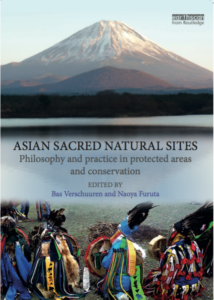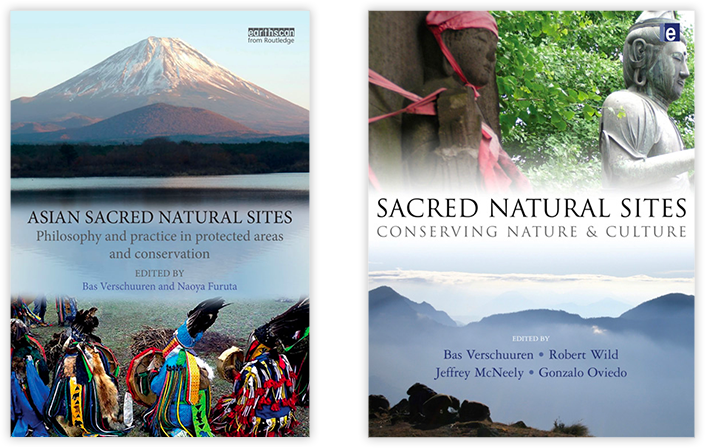
Since sacred natural sites hi the conservation agenda in the late 90-‘s they have been receiving increasing attention from conservationists. In 2008 at the IUCN World Conservation Congress in Barcelona the launch of the IUCN UNESCO Best Practice Guidelines “Sacred Natural Sites: Guidelines for Protected Area Managers” marked a sea change in terms of their recognition.
Next month in Hawaii conservationists of all sorts and from all over the globe will meet again for the 6th World Conservation Congress in Hawaii. Sacred Natural Sites will again be on the agenda and native Hawaiians and park staff will be there to represent the work that they have been doing on sacred natural sites and protected areas. These are some of the foremost events:
- Book Launch: Asian Sacred Natural Sites: Philosophy and Practice in Protected Areas and Conservation. A co-publication of Sacred Natural Sites Initiative and Biodiversity Network Japan. Saturday the 3rd of September, 13:00 – 14:00, Room 318A.
- Session: From Rhetoric to Reality: exploring laws, customary governance and no-go area policies for the protection of sacred natural sites. Sunday the 4th of September, 11:00 – 13:00, Room 315
- Poster: Sacred Natural Sites in Brazil: A Collaborative Research. Saturday

Verschuuren & Furuta (eds) 2016. Asian Sacred Natural Sites: Philosophy and Practice in Protected Areas and Conservation. Routledge, London.
the 3rd September 2016, 13:00 – 13:30, Screen 2
Other important session on cultural and spiritual significance of nature that will surely build on work involving sacred natural sites are those organised by the IUCN Specialist group on Culture and Spiritual Values of Protected Areas:
- Workshop: Cultural and spiritual significance of nature in the governance and management of protected and conserved areas and World Heritage Sites. Monday, the 5th of September, 8:30 – 10:30 am in Room 315. The session ID number is #WCC_10211.
- Protected Planet Pavilion: Cultural, spiritual and sacred importance of nature in Protected and Conserved Areas. Friday 2 September from 12:00 to 13:00, protected Planet Pavilion
Still looking for more ways to engage with sacred natural sites? See how they play a role in some of the thematic journey that have been organised to help lead people with a specific interest through the congress. Try the journey on conservation and spirituality with a high level segment involving representatives of the worlds main religions or the “Nature Culture” Journey that will advance effective conservation practice through integration of nature and culture.






